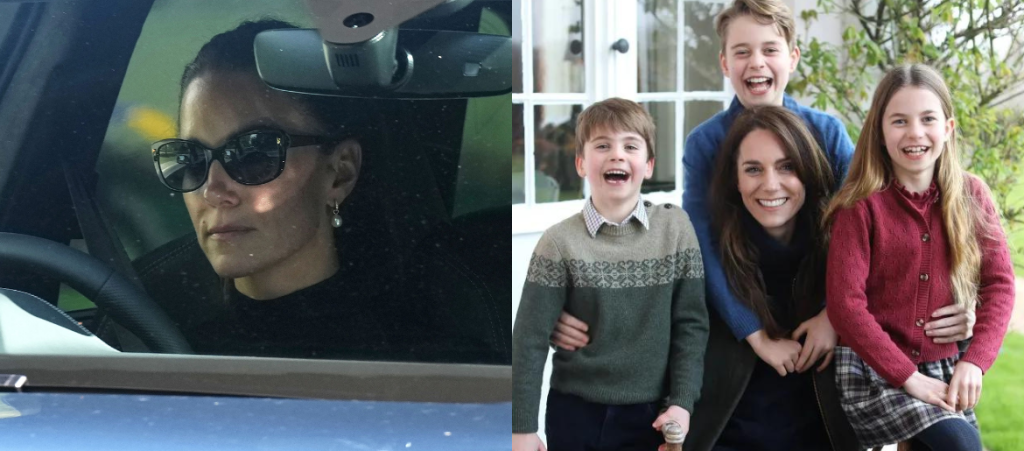
Everyone and their mother has a theory about what’s going on with Princess Kate. It’s being talked about on social media, on the radio, at the dinner table, and 60 Minutes has run a dedicated #WhereIsKate episode. The speculation has ranged from the hilariously mundane (cut own bangs, trying to grow out) to the scandalous (mental breakdown over a potential Prince William love child) to the calculated (power play to prove her importance). The BBC is allegedly standing by to make a major announcement about the British Royal Family by Wednesday… or rather, a random social media user said so online.
I spoke to my sister on the weekend, who said she’s wildly entertained by the whole thing but also a bit confused. “I thought we all hated the royals? So why do I care about this?” By ‘we’ she means young people outside Britain (although the monarchy is not popular with young people there either), and by ‘hate’ she means indifference.
She’s right. Most people are not demanding the Crown show us proof of life because they suddenly care deeply about Kate Middleton or her marriage to Prince William or anyone in the British Royal family. This is just a rare monocultural moment in a world of hyper-specific interests and siloed conversations.
Digital platforms have made entertainment and culture very personalised, driven by algorithms that know you better than you know yourself. Spotify makes playlists curated not only to your specific tastes, but catered down to your listening preferences on the time of day and day of the week. Social media has become entertainment where you can watch the daily ins-and-outs of a girl on the other side of the world, like a tiny reality TV show that only you and 4000 others know about.
There is no more mass media to consume via one TV in the living room, exposing the entire household to shared cultural moments whether they chose it or not. My favourite fun fact is that despite feeling like a huge TV event, the Succession finale was only watched by 2.9 million people; barely anyone, compared to the 105 million people who watched the last episode of M*A*S*H in 1983. The death of monoculture isn’t necessarily a bad thing (on-screen diversity was not a strong feature of TV, film, music or radio in the 90s), but I think it’s made casual, low stakes conversation more difficult, especially across generations.
Me refreshing the search every 5 mints to find out what this announcement the BBC is on standby from the Royal Family is all about!!!!!!#WhereIsKate #KateMiddleton #BBCNews pic.twitter.com/nOYToaXSL7
— Farouk sayf (@farouksayf) March 18, 2024
In 2024, there is nothing more painful than trying to explain to your dad the format of an online meme that is only actually trending for you and people like you, just so you can tell him what you’re laughing at. When he asks, it’s easier to respond with: “It’s nothing.”
These small interactions are the building blocks of genuine relationships and real community, so a fragmented media landscape can be a real barrier to connection. I’m sorry if that sounds dramatic, but it’s true!
But the royal family is a relic of monoculture. This is a story where everyone knows the characters (at least a little bit) and everyone gets the references, from your best friend to your grandparents, your neighbour, your boss to your uni lecturer. And the silliness of it all means you don’t have to be fully immersed to participate in this shared bit of fun that has very little consequence for anyone’s day-to-day life.
Aside from its $150million marketing budget, I think a craving for shared cultural conversations is why Barbie was such a success last year. Regardless of whether you actually saw the movie, everyone knows what Barbie is, so anyone could have an opinion… and they did. The discourse around it, even before release, is what made it feel like such a big deal in the era of algorithms. Even the Marvel Cinematic Universe can’t compete with the ubiquity of Barbie.
These days it’s rare to have ‘A Moment’ that everyone can rally around, and even rarer for that not to be a nightmarish news event. Every four years we get the Summer Olympics, where you don’t need any prior knowledge of the athletes to be able to get behind a team or a country and become an armchair expert for a few weeks. It’s a fun time, not because everyone has the same level of interest, but because chit-chat is easy.
The Paris 2024 Olympics are not until July, so in the meantime, I’m all for indulging in the ridiculousness of ‘Where is Kate’ theories, with just one caveat: conspiratorial thinking is a slippery slope. So long as everyone is on the same page that virtually all current royal speculation is unverified fiction, feel free to indulge in this monocultural moment before it disappears again.
And for giving us this treat, everybody say “thank you, Kate Middleton.”
Smart people read more:
The Key to Happiness? Connecting Your Relationships To One Another
Can monoculture survive the algorithm? – Vox
The Kate Middleton Photo Controversy Is an Inexplicable Mess – Wired

Comments are closed.